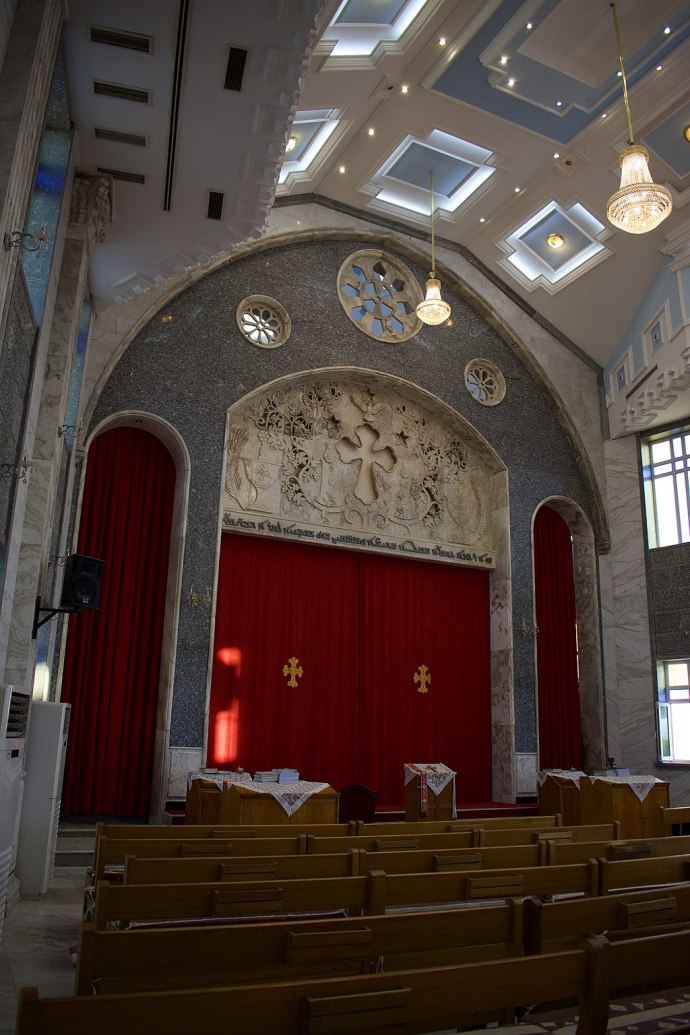The West should look to the Near East to stay grounded in the faith Philos Project President Robert Nicholson wrote in a column for the Wall Street Journal.
For more stories from ALL ARAB NEWS go to allarab.news.
He argued that while the West is materially strong, it is spiritually weak and he believes that hopes for the revival of the Western church will only come with a rediscovery of the “action-oriented Christianity of the Semitic East.”
Christians in the Near East are more than an oppressed people, he argued.
“As Western culture turns against itself, the endangered faithful might help us more than we can help them,” he said.
As an example, Nicholson highlighted the Assyrian Church of the East, indigenous to modern Iraq. It is the easternmost branch of apostolic Christianity, conservator of the world’s oldest Eucharistic liturgy and guardian of the Aramaic language of Christ. It was separated from Western Christianity in 431 C.E. at the Council of Ephesus, after bishops in Assyria and Babylonia broke with the Imperial church over the nature of Jesus and Mary.

“The Church is woefully forgotten today, often thought to be a branch of Catholicism or Orthodoxy. Yet in its heyday, it was larger than the Latin and Greek churches and stretched deep into Central Asia, China and India,” according to Nicholson.
It was ravaged by Persian and Arab crusades, Mongol conquests and Turkish genocide, as well as by aggressive missionary efforts of Western churches.
Nicholson is friends with Mar Awa III, who was recently elected Assyrian Catholicos, or patriarch, whom he describes as a “noble-looking figure with his white beard and serene demeanor.
“The strange thing is that he is so American. Born David Royel to Iraqi-Assyrian immigrants in Chicago, the 46-year-old is conspicuous in his Western mannerisms, unaccented English and doctoral degree from the Pontifical Oriental Institute in Rome. But neither the Windy City nor the Eternal City was never more than a way station for him. From a young age, he looked to the mountains and valleys of northern Mesopotamia, where his people had kept the faith for 20 centuries,” Nicholson added.
In recent decades, the Assyrians have suffered new catastrophes under the despotic Arabism of Saddam Hussein, a poorly executed US occupation of Iraq, and a wave of Sunni and Shiite violence. He noted that the church is “scattered and weak” and that its Evangelical legacy is nearly gone, with a few hundred thousand followers.
“But crunching the numbers and forecasting extinction is a typical Western response to the situation. Mar Awa, like other oriental prelates, walks by a different light. One of his first moves as patriarch was to reinforce his predecessor’s decision to return the church’s headquarters from America to Iraq, announcing a raft of new building projects and a renewed effort to engage the country’s Muslim majority. It all seems rather foolish by Western standards, but not by Christian ones,” wrote Nicholson.
“It was my encounter with this intense, faith-forward Christianity that changed my view of the Gospel,” he said. “In the Near East, the Gospel is a lived tradition: something you do rather than just believe, testifying to the close link between indigenous churches and Christianity’s Jewish origins. Judaism prides itself in a penchant for action over dogma, and Assyrians, like other Eastern Christians, are proud of the Hebraic influences on their thought and practice.”
Nicholson sees Mar Awa’s decision to stay in Iraq as a function of the same Semitic spirit and its reverence for “landedness.”
“Eastern Christians are more embodied than their universally minded cousins in the West, proud of their particularisms, which baffle the Greco-Roman mind with their loyalty to forgotten towns and villages deep within the realm of Islam,” he wrote.
“Remaining in Iraq isn’t provincial," he continued. "It’s evangelical, as are Mar Awa’s efforts to engage the Arabs and Kurds who rule Assyria today. He and his people are pragmatic in their politics, content to live in exile, obedient to the New Testament command to honor the king, respectful of the regime but never bowing to it, reserving their optimism and energy for the work of the church.
“Hyperpolitical, overly digital and drifting in our faith, we can look to leaders like Mar Awa as examples of another way – the original way,” Nicholson concluded.
The original version of this article appeared here.
